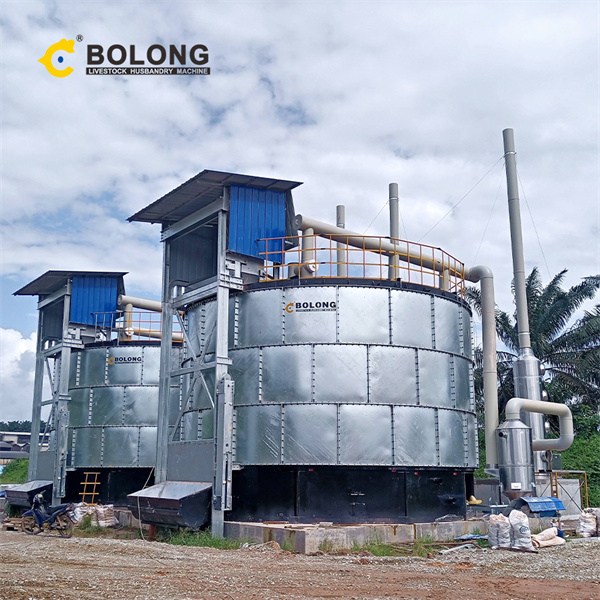Fermentation tanks can play a role in waste-to-energy conversion by producing biogas during the composting process. This renewable energy source can be harnessed to generate electricity and heat, promoting energy sustainability.

Organic waste has significant energy potential. Through anaerobic digestion, it can be converted into biogas, a mixture of methane and carbon dioxide, which can be used as a renewable energy source.
While primarily designed for aerobic composting, some fermentation tanks can be adapted for anaerobic digestion. This process breaks down organic matter in the absence of oxygen, producing biogas that can be captured and utilized.
Biogas production from fermentation tanks provides a renewable energy source, reducing reliance on fossil fuels and lowering greenhouse gas emissions. The residual compost also retains its nutrient value for soil enrichment.

Fermentation tanks have the potential to contribute to waste-to-energy conversion. By producing biogas, they support energy sustainability and provide an additional benefit beyond waste management.